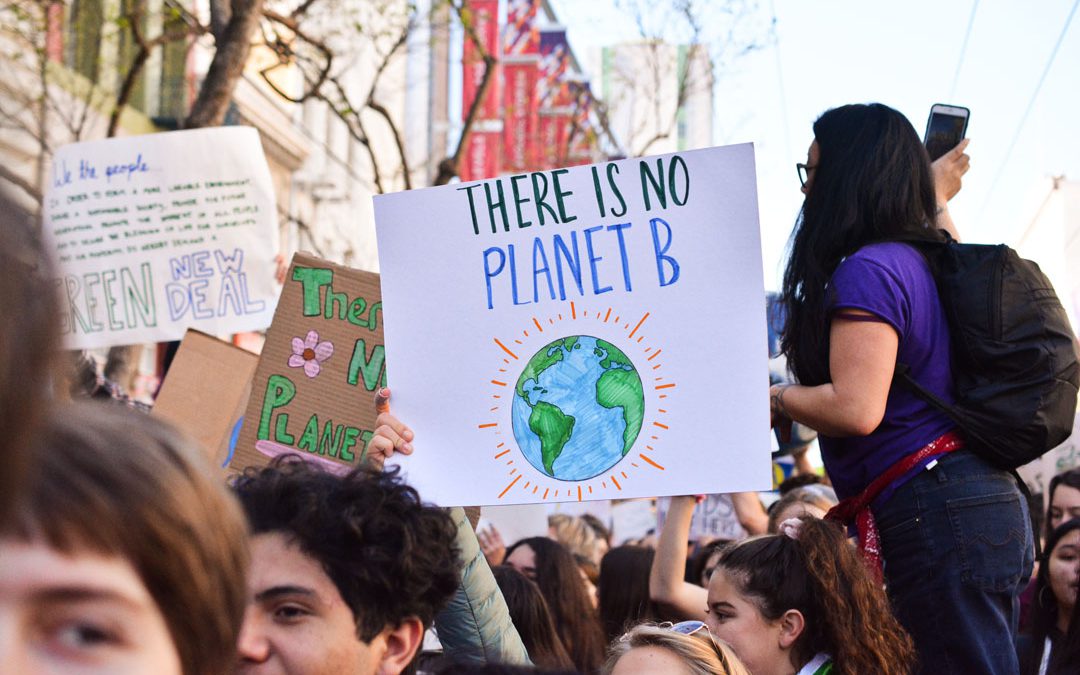WASHINGTON — Alysis Morrissey was sitting at her desk last October when she stumbled upon a new report by the Intergovernmental Panel on Climate Change.
“It said we only have 12 years to change our course and prevent a climate catastrophe from threatening life as we know it,” she recalled.
Immediately thinking of her two young children, she pondered, “What’s going to happen to them? Will they have a future?”
Morrissey’s heart rate increased, she couldn’t breathe and began hyperventilating. This quickly turned into a full-blown panic attack and she ended up in the nurse’s office at the private school in Connecticut, where she’s director of communications.
Experts say they’re seeing more panic episodes like this due to what’s termed “eco-anxiety,” or anxiety about impending catastrophic climate change.
Dr. Lise Van Susteren, a Washington psychiatrist, said she’s seen “an enormous uptick” in persons who identify climate change as a factor with their anxiety.
“Unless you live in a cave, you’ve been hearing about sea level rise, dreadful storms and headlines that warn a quarter of the population will be without water by a certain year,” she said.
While the Diagnostic and Statistical Manual of Mental Disorders does not yet include eco-anxiety, a number of experts like Van Susteren have noted an increase in the phenomenon in recent years.
Laura Schmidt and Aimee Lewis-Reau, co-founders of the Good Grief Network — a 10-step program to reduce eco-anxiety — said young people and children, the elderly and persons who have suffered some sort of trauma or grief are most vulnerable. But Van Susteren said just about everyone is experiencing such anxiety on some level — whether they know it or not.
“It is a normal human reaction to try to suppress uncomfortable data,” she explained.
Though eco-anxiety can manifest itself in a variety of ways, Van Susteren said the predominant feelings are anger, outrage at political inaction and fear. However, activism, she said, is the only way to treat it.
Phillip Jakobsberg, a Vermont engineer, said his puts him in a lousy mood and makes it difficult to sleep. Dr. Gina Angiola, a retired physician, said she’s agitated every time she receives junk mail.
“It means some tree was torn down so some company could send me mail that I do not want and did not request,” she said.
Jennifer Atkinson, an environmental studies professor at the University of Washington, Bothell, near Seattle, who teaches the course “Eco-grief and Climate Anxiety,” said several students have left the environmental studies program because it’s “too depressing.”
Anxiety over the future of the planet has also prompted people to re-evaluate whether to have children.
“If in 10 years things are much worse, I can’t imagine having kids,” said Nate Samuelson, a senior environmental studies major at UW-Bothell.
Morrissey said she won’t have another child — and Jakobsberg, a father of two, says he would’ve questioned even starting a family had he known then what he knows now.
Environmental disasters, such as wildfires, have also induced eco-anxiety. Over the last two summers, Samuelson said wildfires in Washington state have caused so much smoke that he couldn’t see buildings a few miles away. His girlfriend, who has asthma, couldn’t go outside.
When it comes to treating eco-anxiety, Morrissey suggested talking to friends, family and communities on social media, but warned “this particular brand of anxiety can feel like a very lonely battle.”
“People may scoff and say these things don’t make a difference, but they make a difference in your mental health,” she said.
“You want someone to tell you it’s going to be okay, but you also don’t want to burden other people if they’re not thinking about it.”


